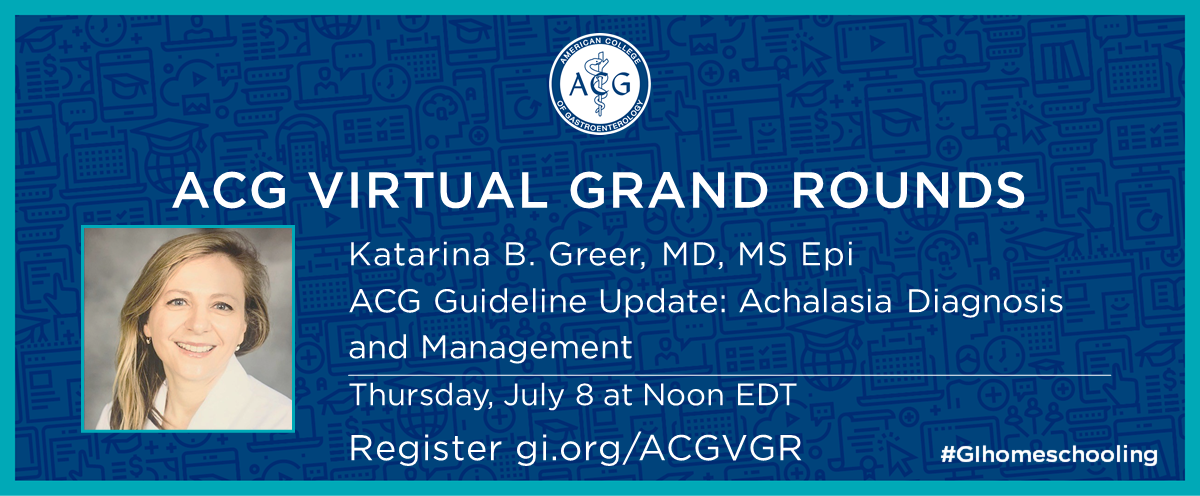Healthcare Issues in the Courts and Guidance on Surprise Billing

From ACG Legislative and Public Policy Council Chair, James C. Hobley, MD, MSc, FACG
Happy Fourth of July weekend! ACG wanted to highlight some notable court cases around the country impacting ACG members and GI practices. As reported, the U.S. Supreme Court recently dismissed the latest challenge to the ACA. ACG is also monitoring other important cases impacting members and GI practices:
The U.S. Supreme Court also dismissed a legal challenge to a CMS’ “site-neutral” payment policy that reimburses off-site hospital facilities an amount for certain services similar to freestanding physician practices. This policy was implemented by the Centers for Medicare and Medicaid Services (CMS), as part of the CY 2019 regulation on outpatient hospital departments and ambulatory surgical centers. The American Hospital Association challenged this rule, alleging that CMS does not have the authority to implement this policy, but rather it’s the role of Congress. A federal district court agreed, but last summer, the D.C. Appellate Court sided with the Trump administration and overturned this ruling. The Supreme Court did not comment on its decision not to review the case. The Biden Administration also had asked the Supreme Court to affirm appellate court’s decision.
A federal district court in New Jersey recently ruled that a health insurer violated the Employment Retirement Income Security Act (ERISA) by a practice that is known as “cross-plan offsetting.” In cross-plan offsetting, the insurer withholds a payment under one plan in order to recoup an overpayment made on another plan. The court ruled that this practice violates the fiduciary duties provision of ERISA prohibiting taking any action adverse to the interests of plan’s participants. The court’s decision follows a 2019 U.S. Court of Appeals ruling that a plan’s documents cannot allow for cross-plan offsetting.
A case before the Illinois Supreme Court could threaten to effectively reduce the long-standing burden-of-proof requirements in medical negligence cases, according to the American Medical Association. After a jury found that four physicians and a hospital were not negligent in their care of a woman who came into the emergency department, an appellate court said the plaintiff should be given a new trial so that the jury can consider “proximate cause,” or link between the medical negligence and patient’s injuries.
On Thursday, the Department of Health and Human Services (HHS) and other agencies released an interim final rule entitled “Requirements Related to Surprise Billing; Part I.” The is the first regulation in an expected series of rules between now and January 2022 implementing provisions of the No Surprises Act, signed into law last year.
This IFR clarifies the Qualified Payment Amount (QPA) by specifying cost sharing calculations for emergency services provided by out-of-network emergency facilities and out-of-network providers, and certain non-emergency services furnished by out-of-network providers at certain in-network facilities. This IFR does not provide guidance on any independent dispute resolution process.
ACG is reviewing the regulation and will provide guidance to members. Click here for CMS’ fact sheet.

Register Today for Upcoming FDA/ACG Public Workshops in July

From FDA Related Matters Committee Chair, Eric D. Shah, MD, MBA, FACG
Register today for the upcoming "Gastroenterology Regulatory Endpoints and the Advancement of Therapeutics VI (GREAT VI)" Workshops. The U.S. Food and Drug Administration (FDA) is partnering with ACG and other medical societies on two important GI workshops on July 21 and July 22.
The first workshop will be on eosinophilic gastrointestinal disorders. Discussions will focus on the following:
- The diagnosis and natural history of eosinophilic gastrointestinal disorders.
- Assessing clinical benefit in eosinophilic gastrointestinal disorders.
The second workshop will focus on celiac disease. Discussions will focus on the approach to drug development in celiac disease and include the following topic areas:
- The histologic endpoints to assess treatment benefit in patients with celiac disease.
- Regulatory framework for pediatric drug development in celiac disease.
- The role of gluten challenge in clinical trials
Information Blocking Rules Go Into Effect
The U.S. Department of Health and Human Services (HHS) finalized regulations designed to promote EHR interoperability and to enhance patients’ ability to control their medical information. The goal is to prevent information blocking among software developers and insurers, removing the current “silos” and opening various health IT closed “ecosystems.”
What does it mean for me?
ACG members must understand that the information blocking prohibition applies to physicians, and that rules placed on software developers, insurers, and hospitals impact your clinical notes and patient care management.
Hear from the legal experts: Click here for ACG's new webinar on the legal implications and impact to GI practices.
ACG will continue to educate members and provide guidance on important issues facing GI practices and clinicians.
New ACG Practice Management Toolbox Article: Is Social Media Right for Me and My Practice?

From ACG Practice Management Committee Chair, Stephen T. Amann, MD, FACG
New this week to the ACG Practice Management Toolbox is an article from Ashwani Kapoor, MD, and Brian So, MD titled "Social Media Is Here to Stay and Has a Powerful Presence: Is it Right for Me and My Practice?" Social media is increasingly used by both doctors and patients. It has created opportunities to help providers connect to our patients, other healthcare colleagues, and to the general public. It is a powerful tool that can help market our practice, share health information, and manage one’s personal and professional reputation. But it also has pitfalls. Read the article to find out if creating and maintaining a social media presence is right for you and your practice.








